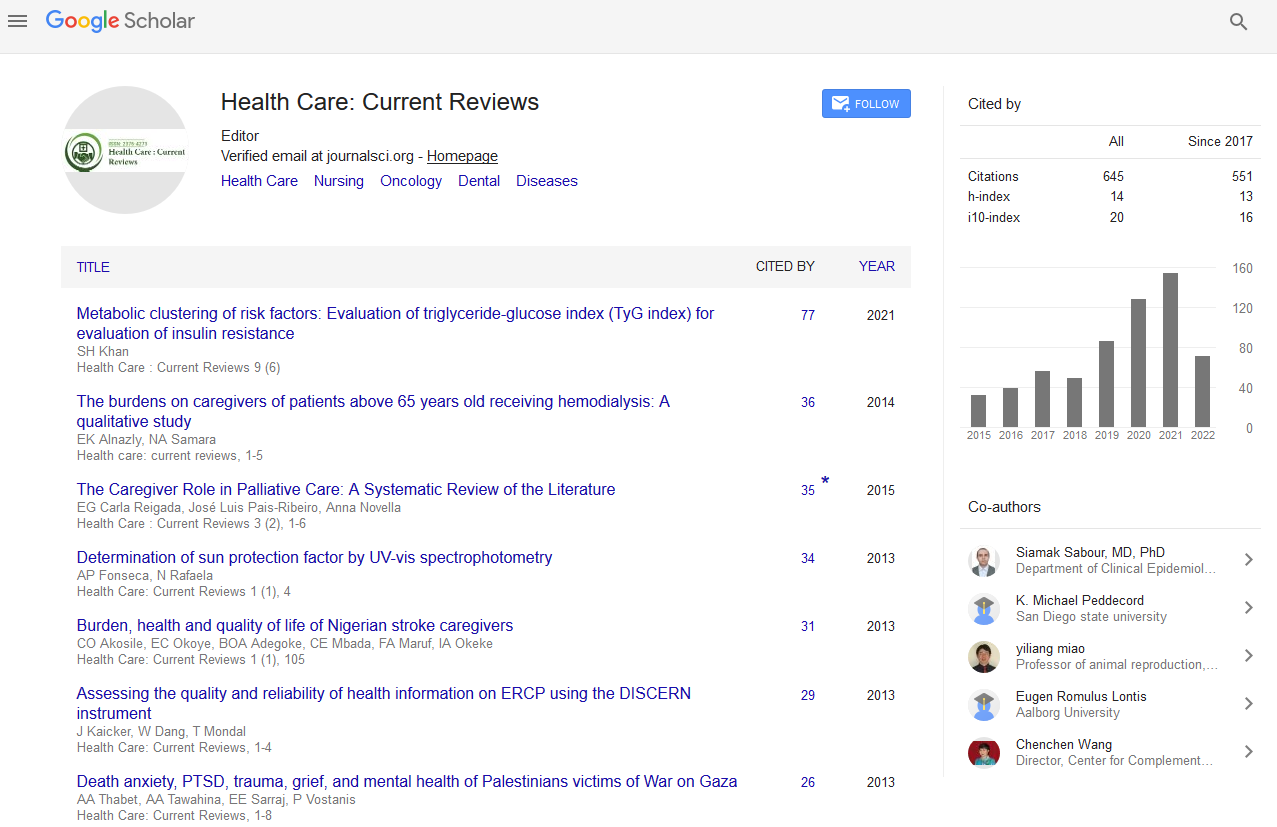PMC/PubMed Indexed Articles
Indexed In
- Open J Gate
- Academic Keys
- RefSeek
- Hamdard University
- EBSCO A-Z
- Publons
- Geneva Foundation for Medical Education and Research
- Google Scholar
Useful Links
Share This Page
Journal Flyer

Open Access Journals
- Agri and Aquaculture
- Biochemistry
- Bioinformatics & Systems Biology
- Business & Management
- Chemistry
- Clinical Sciences
- Engineering
- Food & Nutrition
- General Science
- Genetics & Molecular Biology
- Immunology & Microbiology
- Medical Sciences
- Neuroscience & Psychology
- Nursing & Health Care
- Pharmaceutical Sciences
Abstract
Burden, Health And Quality Of Life Of Nigerian Stroke Caregivers
Akosile Christopher Olusanjo, Okoye EC, Adegoke BOA, Mbada CE, Maruf FA and Okeke IA
Abstract Caring for a stroke survivor could become burdensome and may negatively affect the caregiver’s health and quality of life (QOL). Studies from African populations depicting the relationship between burden of caregiving and the health and QOL of the caregivers are rather rare. The level of burden of caring for stroke survivors among informal stroke caregivers in Nigeria and its relationships to their QOL and its components was investigated in this study. This was a secondary analysis of data from a descriptive cross-sectional survey of 91 (55 males, 36 females) volunteer caregivers of stroke survivors recruited from purposively sampled tertiary health facilities in South-Eastern Nigeria. The Carers’ Strain Index and the Short Form 12-item Health Survey were used for estimating carers’ burden, and QOL and its components respectively. Data was analysed with frequency and percentages, mean and standard deviation and Mann-Whitney U test (p ≤ 0.05). Majority (83.5%) of the caregivers reported a high level of burden. QOL was most severely affected in the role limitation due to emotional problems and general health domains, though overall QOL score was modest. QOL scores were significantly lower for caregivers with high level of burden overall (p=0.01) and in the Mental (p=0.04) and Physical (p=0.01) Component Summaries. High level of burden among stroke caregivers portends serious consequences for their health and quality of life. While the physical consequences may be more easily observed in the presence of higher burden, emotional problems may more severely undermine role functioning. Attempts by clinicians to ameliorate carers’ burden may be necessary for sustaining good health and QOL among the group. Attention should be particularly placed on their psychological/ emotional needs. These may be achieved with inclusion of appropriate handling techniques in caregivers education plan and providing adequate emotional support and counselling.


